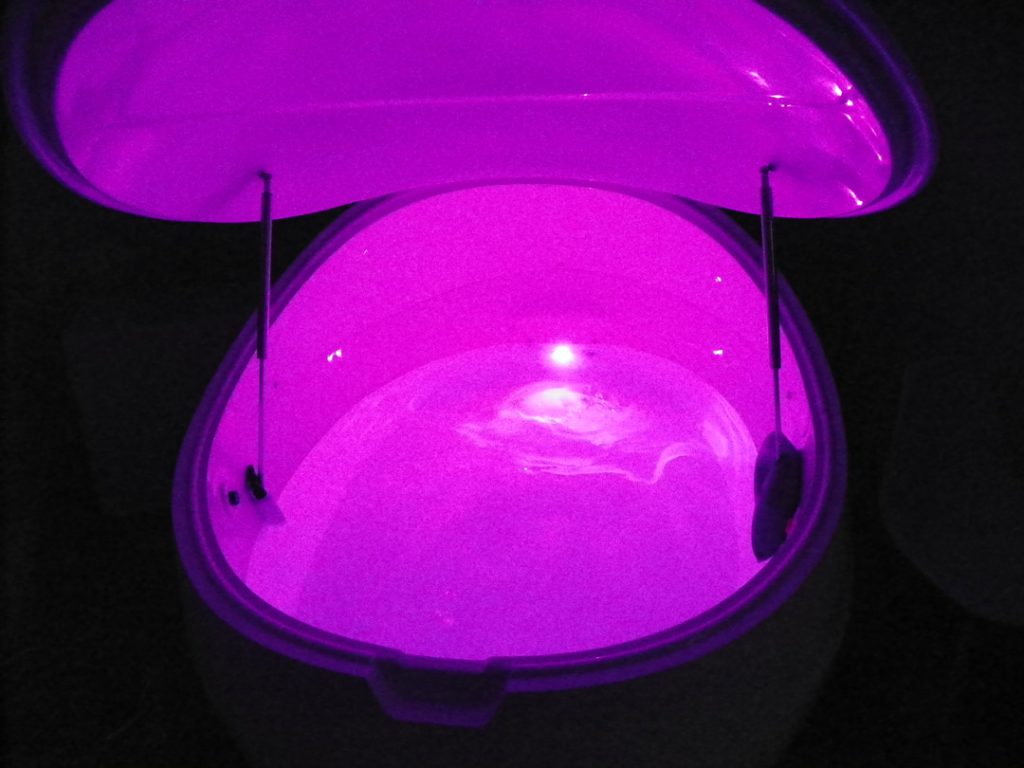
Floatation Therapy and the Brain!
Floatation Therapy and the Brain!
Recently many people have been going crazy over floatation therapy, previously known as ‘sensory deprivation’ or ‘isolation tanks’. The name floatation tank has now stuck and is becoming a modern trend for many people. Especially professionals experiencing stress and burn out. Along with athletes looking to boost recovery after exercise but also as part of their fitness regime. Furthermore, there is a link between floatation therapy and the brain.
Floatation therapy has proven itself scientifically over the past decade, with a number of studies worldwide on a variety of different topics.
Today, however, I want to focus on the mental aspects and benefits of floatation therapy on the brain. Floatation tank therapy sessions in short basically protect our brain from over-stimulation due to the continuous bombardment of external stimuli which includes noise, odour, vision, temperature, taste and most of all gravity although gravity acts collectively on our entire body not to mention our existence.
What is continuously happening to us is that all our receptors are constantly sending messages to our brains. From what we see, hear, smell, feel or taste. Our brains constantly process information that is sent to us by our eyes, nose, ears, skin and tongue. We have grown accustomed to processing this information received almost subconsciously. Only reacting consciously when our brain detects an anomaly that should not be present.

Photo of a floatation tank taken before a session at Rest House Float Centre Melbourne
This, in turn, triggers our ‘fight or flight response’ which is always in standby mode. Now when our fight or flight system is on standby, we advocate a constant stress level. Stress level which, in turn, causes the body to produce enzymes such as cortisol. And also a ready amount of adrenaline which ‘pressures’ us. Whilst doing all this, notions of rest, relaxation, peace and quiet are all but a distant element that we think is only attainable when we are sleeping. This is not true, based on the fact that we are able to have this even when we are conscious and working in the sense of having lower levels of stress causing chemicals in our body.
Research on REST or Restricted Environment Stimulation Therapy has repeatedly proven to have a positive impact on the brain. According to most research, REST therapy reduces the frequency that our brain functions. Due to the fact that external stimulants are not present causing the brain to go into deep relaxation mode.
How powerful is our brain? Well, imagine that it would require more than 80,000 processors running on the world’s speediest computers to just mimic a second of the activities that go on in our mind. And to give you a more mind-numbing number trying gauging a Petabyte, which is what our brain’s capacity is – 1 Petabyte = 1,000,000,000,000,000).
When our receptors go into sleep mode during REST therapy a big percentage of this processing power is released from ‘duty’, so to speak.
However, the brain does not just switch off, it actually refocuses all this processing power towards internal optimisation. During a float session, the removal of external stimuli allows the brain assimilate the information that has flowed into it. This assimilation can actually help with problem-solving and decision making
Due to this most researchers believe that those who subscribe to one or 2 x a week floatation therapy have better focus, enhanced problem-solving ability, faster recovery from injuries, better ability to manage pain and so on and so forth.
Among the more protuberant findings is the encouraging impact that floatation therapy has on blood pressure and the level of perceived pain. Pain is the predominant factor why people suffer. Getting rid of pain or discomfort is a primary agenda in almost any healing process. The profound rest and relaxation cause your body to release endorphins — the body’s all-natural “painkillers.”
Float therapy does something to our brain that allows our brain to not just fix itself, but fix us as we are. You can sing ‘pain-pain go away’ and unless you are floating in a sensory deprivation tank, chances are, it is not going to go away anytime soon. Float tank therapy has been scientifically proven to have a profoundly positive impact on health and wellness.The health benefits of floatation therapy can last for days, weeks, or even months afterwards and additional floats only heighten the effects.














